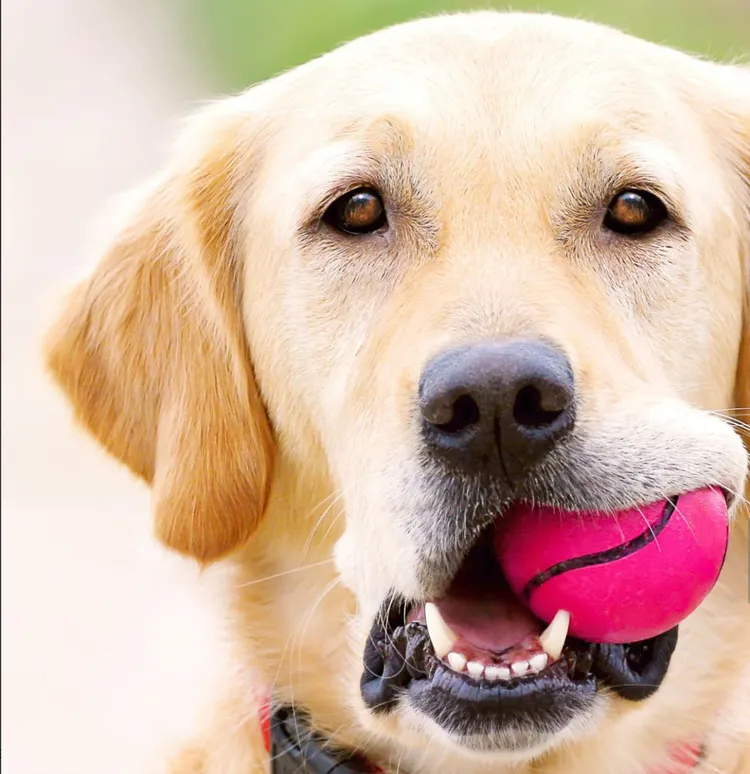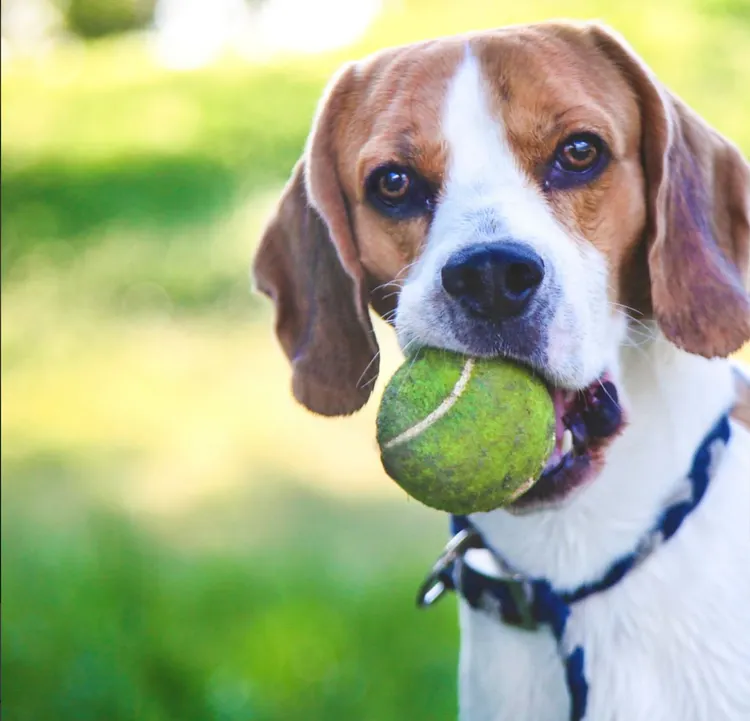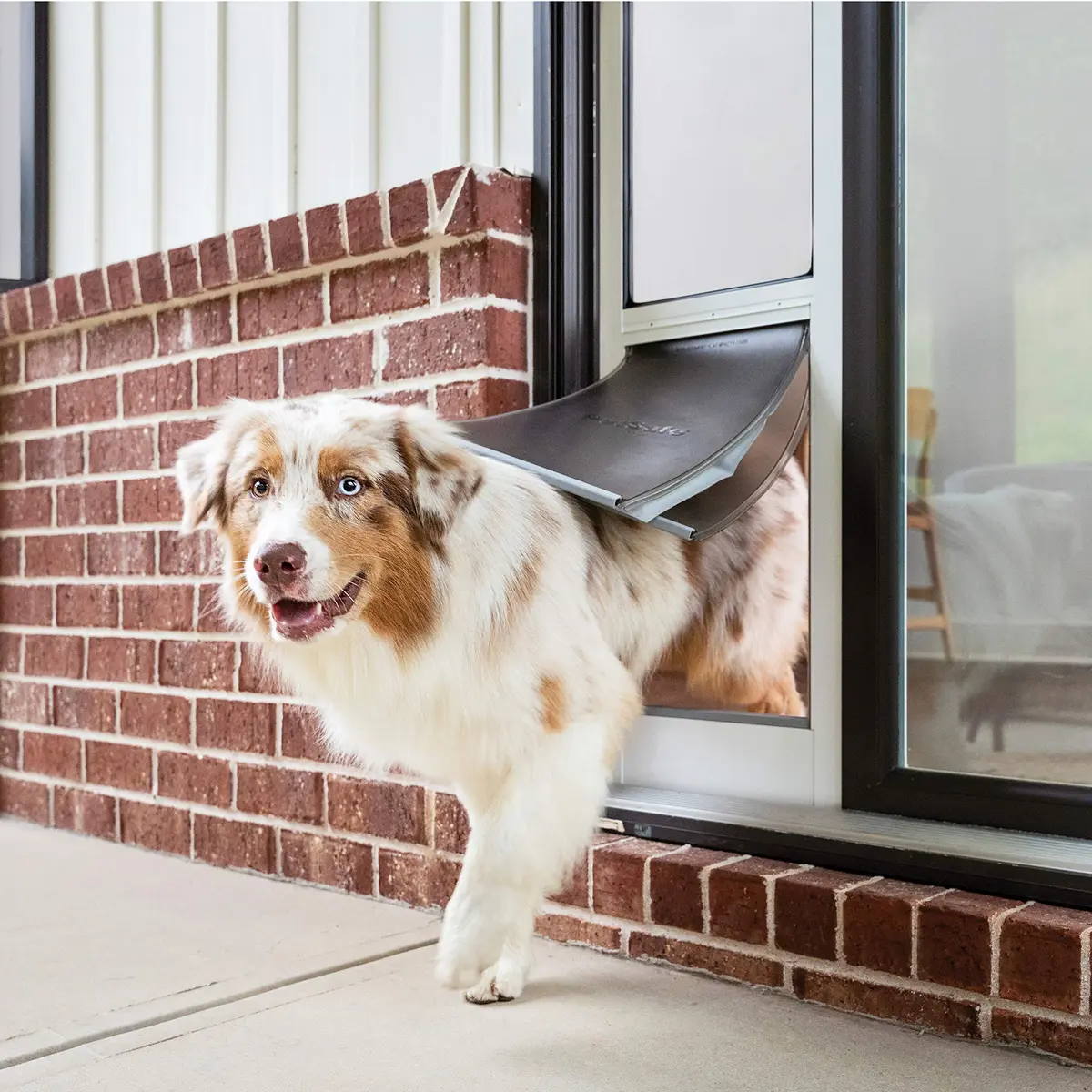Ever played fetch with your dog and wondered, “Is this tennis ball actually safe for my furry friend?” If so, you’re not alone. Many pet owners love using tennis balls because they’re affordable, accessible, and dogs seem to love them. But while tennis balls are a classic fetch toy, they may come with some unexpected risks that could affect your dog’s health and safety. In this article, we’ll explore the potential dangers of tennis balls for dogs, expert-backed recommendations, and eco-friendly alternatives to help you play it safe.
Why Dogs Love Tennis Balls
Tennis balls are one of the most popular toys for dogs, and it’s easy to see why. Their soft, chewy texture makes them appealing to carry around, while their bouncy movement triggers a dog’s natural chase instinct. Here are a few reasons why dogs are so drawn to tennis balls:
- Soft, Chewy Texture:
Dogs love the spongy, flexible feel of a tennis ball. It’s easy for them to pick up with their mouths, and many dogs enjoy chewing on the soft exterior. - Bounce and Movement:
The unpredictable bounce of a tennis ball when it hits the ground mimics the erratic movements of prey. This activates your dog’s innate hunting instincts, making them eager to chase it down. - Interactive Play:
Playing fetch with a tennis ball engages your dog’s physical and mental energy. Fetch games build a bond between you and your dog, offering them the chance to enjoy playtime while getting some much-needed exercise.
The Risks of Using Tennis Balls for Dogs
While tennis balls might seem like a harmless and fun toy, there are several health and safety risks associated with their use, especially when dogs are left unsupervised. Here’s a breakdown of the main concerns:
1. Choking Hazard
One of the biggest risks with tennis balls is that they can break apart during play, especially when used by aggressive chewers. Small chunks of the ball’s rubber core or the felt outer layer can tear off, potentially leading to choking or airway blockages if swallowed. Even worse, larger chunks can lodge in the dog’s throat, cutting off their ability to breathe, which may require an emergency trip to the vet.
2. Dental Damage
Tennis balls are covered in a felt-like material designed to withstand rough use on tennis courts. Unfortunately, this same abrasive material can be rough on your dog’s teeth over time. Frequent tennis ball chewing can wear down the enamel, leading to dental erosion. According to vets, dogs who constantly chew on tennis balls may develop “tennis ball mouth,” where their teeth become excessively worn down from the rough texture of the felt.
3. Toxic Materials
Not all tennis balls are created equal. Some tennis balls contain toxic chemicals or materials that weren’t intended for use by pets. Traditional tennis balls are made for human sports, not pet safety. Low-quality or non-pet-safe tennis balls may contain harmful substances, such as glue or plastic additives, that could be toxic if ingested. Dogs who chew on or ingest parts of these tennis balls could be exposed to chemicals that aren’t safe for their health.
4. Risk of Intestinal Obstruction
If a dog swallows chunks of a tennis ball, those pieces can cause intestinal blockages. Unlike soft food or small treats that break down in the digestive system, tennis ball pieces can stay lodged in the intestines, causing a dangerous obstruction. This is a serious medical condition that often requires surgical removal.
When (and How) Tennis Balls Can Be Safe
Although tennis balls come with risks, they can still be used safely if certain precautions are taken. Here’s how you can minimize the dangers while still allowing your dog to enjoy a fun game of fetch:

1. Supervised Play
Only allow your dog to use tennis balls under direct supervision. Never let your dog use a tennis ball as a chew toy when they’re unsupervised. During fetch sessions, keep an eye on the condition of the ball and take it away if it becomes too damaged or if chunks start to come off.
2. Choose Pet-Safe Tennis Balls
To ensure your dog’s safety, choose pet-specific tennis balls made with softer materials and without harmful chemicals. These tennis balls are designed to be gentler on your dog’s teeth and non-toxic. Several companies produce pet-safe tennis balls that are designed specifically with dog safety in mind.
3. Rotate Toys
Instead of relying solely on tennis balls for playtime, rotate your dog’s toys to prevent overuse of any one type. This not only helps avoid excessive wear and tear on tennis balls but also keeps your dog mentally stimulated by introducing variety.
Eco-Friendly Alternatives to Tennis Balls
For eco-conscious pet owners, there are numerous eco-friendly alternatives to tennis balls that provide safe, fun, and sustainable options for fetch games. These alternatives are designed with your dog’s safety and the environment in mind.
1. Natural Rubber Balls
Natural rubber balls are a fantastic alternative to tennis balls. They are non-toxic, biodegradable, and often made from sustainable rubber sources. These balls are durable yet gentle on your dog’s teeth, making them ideal for both fetching and chewing.
2. Hemp Rope Balls
Hemp is a sustainable, biodegradable material, and hemp rope balls are tough enough to withstand heavy chewing while still being gentle on your dog’s teeth. These balls are ideal for fetch games and are made from a material that’s both safe for pets and better for the environment.
3. Recycled Plastic Fetch Toys
Some companies produce fetch toys made from recycled plastic. These toys are durable, long-lasting, and provide a second life for discarded plastic materials. Not only are they safe for your dog, but they also contribute to a reduction in plastic waste.

Expert Recommendations on Safe Play
To keep your dog safe and happy during fetch, follow these expert recommendations for using tennis balls or any other fetch toy:
1. Limit Chewing Time
Tennis balls should be used strictly for fetch games and not for unsupervised chewing. This reduces the risk of choking or dental damage.
2. Rotate Toys Regularly
Switch up your dog’s toys to prevent overuse of any single toy. This keeps the toy in good condition and prevents your dog from developing an obsession with chewing one specific item.
3. Watch for Damage
Before each fetch session, inspect the ball for cracks, tears, or other signs of damage. If the ball is worn out or compromised, discard it immediately to avoid any risks.
4. Seek Veterinary Guidance
If you’re unsure whether tennis balls are right for your dog, it’s always best to consult your veterinarian for advice. They can offer guidance based on your dog’s breed, size, and chewing habits.
While tennis balls can be a fun and interactive way to engage with your dog, they come with potential risks that should not be ignored. From choking hazards to dental damage and toxic materials, there are several factors to consider before letting your dog play with a tennis ball. By choosing safer, eco-friendly alternatives and following expert advice, you can ensure that your dog enjoys their playtime without compromising their health. With a little care, fetch can remain a beloved activity for your pet—minus the worries.



